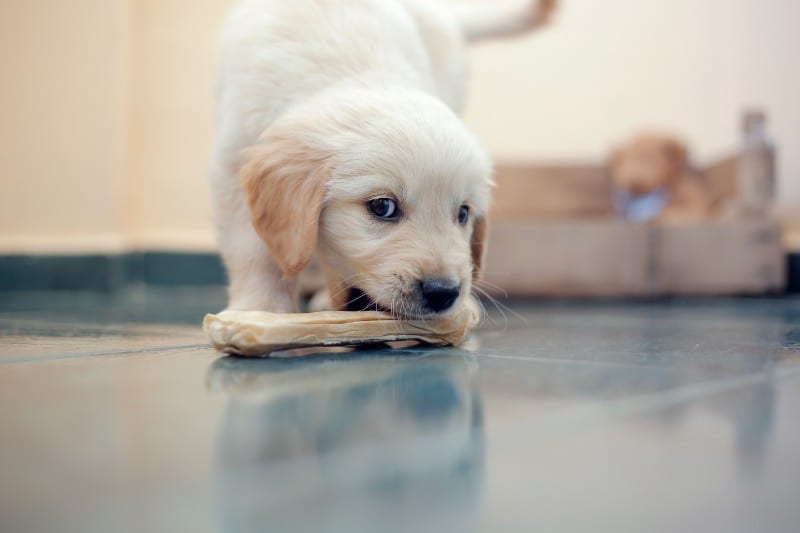
When it comes to treating our pets, there are so many options to choose from. If it were up to them, they’d probably try one of every variety at the store. Instead, we have to make the best choices for them. But what if you could find a treat for them that also benefits their dental health?
Pet dental chews can be great additions to your pet’s oral care and treat routine, but it’s crucial to choose from the safest and healthiest products available.
A Word On Pet Dental Health
The inarguable truth is that your pet’s dental health directly impacts whole body wellness. Plaque and tartar will build up over time. Left alone, gingivitis (inflammation of the gums) leads to periodontal disease, a disease of the gums.
The bottom line is that routine brushing at home, professional cleanings and exams are the best defense against periodontal disease. But there is more you can do.
The Deal With Chewing
The act of chewing is a big part of a dog’s life. Puppies chew it eases the teething process. But it’s a behavior that carries through a dog’s entire life because it feels good and occupies their mind. Luckily, we can use this normal canine behavior to benefit their dental health.
To effectively protect against periodontal disease, pet dental chews and treats should be soft enough for the teeth to sink into. Chewing massages the teeth, increases blood flow to the gums, and helps remove plaque. Also, it stimulates the production of anti-microbial saliva which further reduces plaque buildup.
The Right Pet Dental Chews
Pet dental chews are not all the same. In fact, many types can cause harm. Before you buy pet dental chews check to see if it’s been evaluated and endorsed by the Veterinary Oral Health Council (VOHC). The mission of the VOHC is to determine and set standards of products advertised to reduce plaque and tartar.
Words to the Wise
Chewing palatable treats is enjoyable for most pets, but if you notice that they lose interest in chewing before swallowing, dispose of it so it doesn’t become a choking hazard. Also, please don’t leave your pet alone while they’re enjoying a chew or treat.
The following products are not recommended because they are considered unsafe or unhealthy:
- Rawhide bones can be swallowed in large chunks, placing a pet at risk for GI obstruction. Plus, they are high in fat.
- Pigs ears are also really fatty and can expose a pet to pancreatitis.
- Hard bones, antlers, hooves, hard chews, or hard plastic/nylon bones can damage and even fracture teeth.
- Cooked bones can splinter and crack. If swallowed, a pet can suffer unnecessary (and painful) injury.
Not a Replacement
While beneficial, pet dental chews are not substitutes for regular brushing and routine cleanings/exams. They can also add calories to your pet’s diet. Adjust meal portions accordingly. Lastly, only provide soft dental chews that are appropriate for your pet’s size.
If we can assist you further with questions about your pet’s dental health, please contact us. Were always here for your pet at Schertz Animal Hospital.
Recent Posts
About Us
We know that choosing the right veterinarian for your pet (and you) can be a challenge. Yet, with our stress-free handling, our long-term, experienced staff, and a state-of-the-art facility, we make the decision an easy one!
